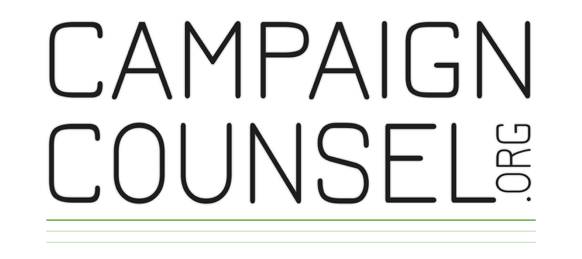What to Expect From Board Members During Capital Campaigns
Expect to be a Favorite
The expectations you set for your board during a capital campaign and beyond are important. Whether yours is a small board with no major-gift fundraising experience or a large board that knows its job is to reach out to philanthropists, what you expect and communicate to your board members is vital to reaching your goals.
The most important metric is buy-in. Do your board members consider your nonprofit to be one of their “favorites?” If so, they should be prepared to give their three Ts – time, talent, treasure. If you’re considering a capital campaign and you have a small development staff, these three Ts are more vital than ever.
Five Ways to Know Your Organization is Your Board Member’s Favorite
5. They advocate.
The best board members accept their personal responsibility in the success of your campaign. They share your story in the community and among their peers. They think of actions they can personally take to get the word out about the organization and the campaign. They use their time to spread the word.
Encourage this behavior: Ask them to bring a friend or colleague for a tour of the nonprofit once a month during the campaign.
4. They open doors.
Taking time to open doors to potential donors is expected during a capital campaign and should be expected throughout a board member’s term. Opening doors by a board member can include sharing their contacts, helping your nonprofit identify potential new supporters, and getting creative about how your organization can collaborate with individuals, businesses and foundations during your campaign.
Encourage this behavior: Ask them to connect two new people to the nonprofit per month during the campaign.
3. They share skills.
When your board members have particular talents, like marketing, writing, or designing, ask them to lend those strengths to the campaign can help make you successful and keep your outsourcing costs down. Professionals in banking, investments, real estate, accounting, and the law can provide expert insight and advice as well.
Encourage this behavior: Personally ask them what skills they can contribute and take them up on those offerings.
2. They invite others to contribute.
Your board members should expect to participate in bringing support to the organization throughout the year. During annual appeals, they can sign appeal letters to their friends and family and send thank you letters. Especially during a capital campaign, they should make introductions and consider joining in on solicitations with another board member or the executive director. Be sure to connect them with your consultant to be trained on the proper way to make a major-gift ask.
Encourage this behavior: Ask them to identify 10 “asks” they can make and will complete during the campaign.
1. They give.
Board members giving their treasure in the form of a one-time or multi-year pledge to the campaign is also essential. Prospective donors will want the assurance that your board is 100% committed to the project, and that all of your board members have given a personally significant gift. The definition of that differs for every person, so be clear with your board members that this is the expectation.
Encourage this behavior: Take each board member through the solicitation process and ask each to make a meaningful gift.
Get board members to embrace you as their favorite
If you have never approached your board with these expectations and they aren’t accustomed to participating in this way and giving financial gifts to your organization, you can address it strategically. It is particularly helpful if you know you are approaching a significant event, like an endowment or capital campaign, as a rationale to revisit your by-laws or develop a board expectation form that you can ask board members to complete each year.
A Give or Get Clause
Including a “give or get” clause in your bylaws should be considered – as in how much board members are expected to give as part of their service on the board and how much they are expected to get from others. This shows board members that they are expected to make a personal gift and help fundraise. It is common for nonprofits to require this level of participation and set minimums for giving and getting.
Board Expectation Form
A board expectation form could go along with any board member commitment form or be included in it. The expectation form includes language indicating that the board member understands that their financial commitment is necessary to the success of the organization and asks him or her to indicate how they will participate financially in fundraising events and a personal financial pledge. It might also include selection of committees on which the member will serve and how the member will help open doors and cultivate donors. Here’s an example to get you started creating your own board expectation agreement form.
A change to the bylaws and the institution of a board expectation agreement will give your organization the opportunity to have an honest discussion while also giving board members who may not be interested anymore to gracefully roll off the board. The reality is you need all of your board members to be your biggest champions, both in their words and in their actions. Making a personally significant donation to your nonprofit is one of the most powerful actions that a board member can take to show their passion for your cause.
Learn more
If you know your organization needs to embark on a capital campaign but you aren’t sure if you are ready for this challenge, contact us to schedule a free no-obligation workshop. Our experts at CampaignCounsel.org will walk you, your staff and your board through the steps to help you prepare for a fundraising campaign.
If you liked this, read this: Ask Your Board These Questions to Determine Capital Campaign Readiness.
Kevin Wallace is president of CampaignCounsel.org.






